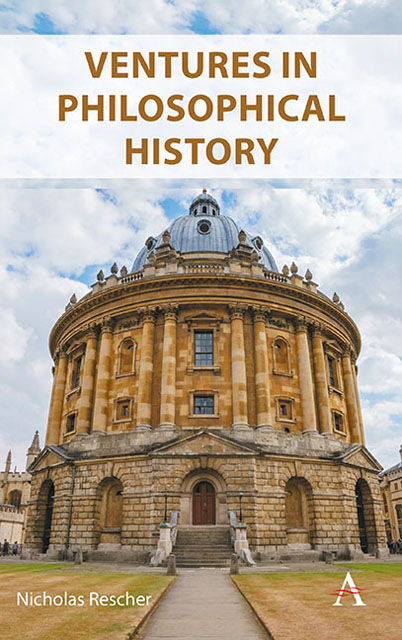Book contents
- Frontmatter
- Dedication
- Contents
- Preface
- Introduction
- 1 The Principles of Leibnizian Metaphysics
- 2 Leibniz and “The Liar” Paradox
- 3 Hume and Conceivability
- 4 Hume and Rationality
- 5 The Rationale of Kantian Ethics
- 6 Kant on a Key Difference between Philosophy and Science
- 7 Pragmatic Perspectives
- 8 Wittgenstein’s Logocentrism
- 9 Did Leibniz Anticipate Gödel?
- 10 Quantum Epistemology
- 11 Constituting the Agenda of Philosophy
- 12 Philosophy of Science’s Diminished Generation
- 13 A Fallen Branch from the Tree of Knowledge: The Failure of Futurology
- Name Index
12 - Philosophy of Science’s Diminished Generation
Published online by Cambridge University Press: 10 January 2023
- Frontmatter
- Dedication
- Contents
- Preface
- Introduction
- 1 The Principles of Leibnizian Metaphysics
- 2 Leibniz and “The Liar” Paradox
- 3 Hume and Conceivability
- 4 Hume and Rationality
- 5 The Rationale of Kantian Ethics
- 6 Kant on a Key Difference between Philosophy and Science
- 7 Pragmatic Perspectives
- 8 Wittgenstein’s Logocentrism
- 9 Did Leibniz Anticipate Gödel?
- 10 Quantum Epistemology
- 11 Constituting the Agenda of Philosophy
- 12 Philosophy of Science’s Diminished Generation
- 13 A Fallen Branch from the Tree of Knowledge: The Failure of Futurology
- Name Index
Summary
The outbreak of war in the late 1930s created turmoil throughout the realm of European scholarship. Even in the distant USA, there were massive reverberations, and after America's entry into the conflict, the demands of war had a massive impact as a whole generation of young people was diverted from normal life into military activities. Academic philosophy could not but be affected. The generation born in the 1910–1920 decade was especially hard hit, with its ranks depleted by the demands of war. The present discussion will examine one instructive instance of this phenomenon, the diversion of one particular and a particularly significant individual from philosophical scholarship into a very different pathway of endeavor.
The person at the focus of my deliberations here is something of a paradox. He is the most important twentieth-century philosopher no living philosopher ever heard of. A scholarly official near the top of the Pentagon hierarchy (Alan C. Enthoven) said he “was the most important strategic analyst and thinker of his own time.” A high official in the State Department (Richard Rosencrance) wrote that “Probably no civilian strategist has had more influence in the nuclear age that [he].” I think it is fair to call him “the Clausewitz of nuclear age.” His name is Albert C. Wohlstetter. And he was a trained philosopher of science.
Albert James Wohlstetter was born in 1913 to an affluent Jewish family living in the then-fashionable Washington Heights section of Manhattan. (His father, an attorney, was the chief counsel to the Metropolitan Opera and a major investor in early filmography production.) Wohlstetter attended CCNY (with a scholarship in modern dance!) graduating with a B.A. in 1934. (There was always a touch of gracefulness to his movements.) Like many of his New York City contemporaries, he was enthralled by Trotskyite communism in his early years.
After college, he turned to philosophy—specifically to philosophy of science and logic. From 1935 to 1940 he was a graduate student at Columbia, studying logic and philosophy under Ernst Nagel and Morris Cohen, and statistics under Abraham Wald. He took his M.A. in 1938 with a thesis in symbolic logic with Nagel, and had his first publication in 1940 with a review of J. H. Woodger's book on The Technique of Theory Construction in the Journal of Symbolic Logic.
- Type
- Chapter
- Information
- Ventures in Philosophical History , pp. 137 - 144Publisher: Anthem PressPrint publication year: 2022



